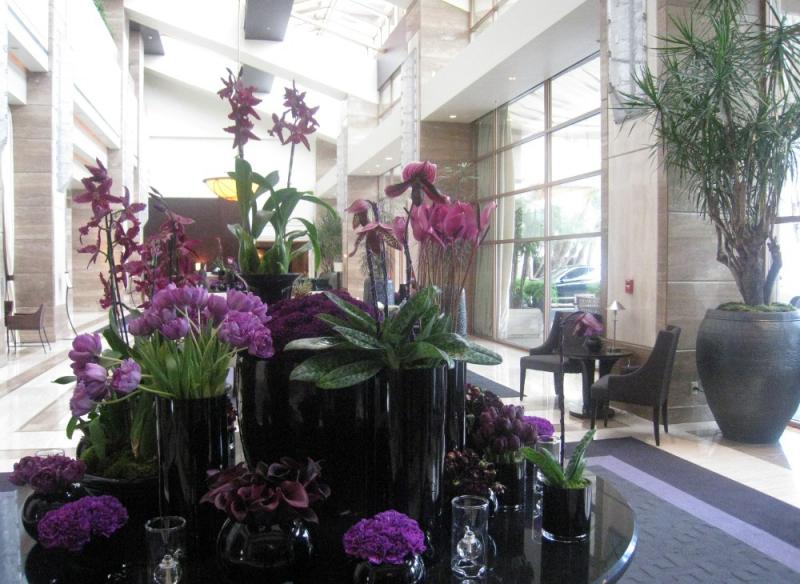Senses respond to aromatherapy
Recently, I visited a beautiful Asian-influenced boutique hotel that was artfully appointed with modern furnishings and tasteful decor. While my eye was pleased by the look and feel of the hotel, my nose was dismayed by the stale Victorian-era aroma.As an ambient designer who works with hoteliers, healthcare providers, and retail and casino managers, I strive to ensure that sensory satisfaction is achieved with all of the senses. Fortunately, more and innovative companies realize that creating a more memorable and satisfying environment experience demands the use of scenting
An article in the Journal of the Human-Environmental System reported that “the impact of indoor air quality on the well-being and comfort of a building’s occupants are key to creating an indoor environment which increases human performance. Research clearly shows that the addition of olfactory substances to the indoor air can significantly increase the satisfaction rate of building occupants.”
After Belgium’s Middleheim Hospital spent considerable time and money refurbishing its facilities, they found that the hospital retained a typical “hospital smell.” The hospital conducted a pilot study to determine the psychological effects of scent in a hospital and the use of smell as a way of improving the hospital experience. The survey results suggested greater well-being, psychological comfort and satisfaction were achieved by participants who spent time in the scented hospital lobby and main seating areas versus the unaltered original hospital odor.
 There are many reasons to consider the incorporation of scenting into any environment, but here are my top four reasons to take the sensory hurdle:
There are many reasons to consider the incorporation of scenting into any environment, but here are my top four reasons to take the sensory hurdle:
1. Eliminating stale, stagnant air quality. The absence of a malodor does not mean that indoor air quality cannot be improved. The introduction of a scent ambience into an interior space enhances indoor air quality.
2. Remediating odor. Stinky situations abound. Where smoking is permitted, there may be a strong tobacco smell because of a lack of air circulation in the hallways and main meeting areas. Or a top floor of a facility may feature a moldy smell from the humidity caused by the doors to the rooftop. Pets may leave musky animal smells long after the animal has departed.
3. Building a sensory brand consumer connection. Sensory branding stimulates a consumers’ relationship with a brand and cultivates an emotional connection that optimizes brand loyalty. More and more senior living and LTC facilities are realizing the potent connection between scenting and spirit. In years past, these facilities only cared about odor remediation. Eliminating unpleasant smells is yesterday’s news in the LTC and senior living world. Today’s facilities are now tapping into scent branding, developing their own unique sensory brand as part of their public space (lobbies, recreational and lounge areas) amenities.
4. Optimizing life through aromatherapy. Aromatherapy is the use of scent and the essential oils of flowers, herbs and trees to promote health and well-being. There is a growing body of evidence that the essential oils used in aromatherapy can promote relaxation, reduce stress, improve alertness and mood and energize the body. The introduction of aromatherapy scent branding can improve the quality of life in healthcare settings, spas and offices.
I look at the incorporation of scent from a design perspective; not merely as an odor remediation issue. By analyzing the senior living market, we come up with a scent brand profile that energizes and empowers each environment.Adding a tailored scent to a facility creates a deeper connection with the consumer. While a hotel near the ocean, for example, might feature a beach-inspired scent with notes of coconut and lime, an upscale senior living residence may incorporate lavender or other aromatherapy-infused scents that promote relaxation and harmony.
Based in Seattle, Roel Ventura is an award-winning Ambient Designer for Ambius. For more information, visit www.ambius.com/roel.
I Advance Senior Care is the industry-leading source for practical, in-depth, business-building, and resident care information for owners, executives, administrators, and directors of nursing at assisted living communities, skilled nursing facilities, post-acute facilities, and continuing care retirement communities. The I Advance Senior Care editorial team and industry experts provide market analysis, strategic direction, policy commentary, clinical best-practices, business management, and technology breakthroughs.
I Advance Senior Care is part of the Institute for the Advancement of Senior Care and published by Plain-English Health Care.
Related Articles
Topics: Articles , Design











